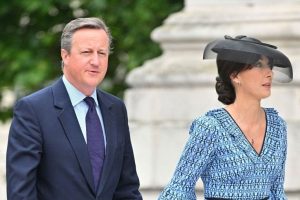Top 10 Corrupt Politicians in the World
Corruption within political circles has led to disillusionment among citizens across the globe. Here, we shine a spotlight on ten politicians who have garnered infamy for their involvement in corrupt activities, leaving a trail of scandals in their wake.
The Impact of Corruption
Corruption has far-reaching consequences, not only for the political landscape but also for the social and economic well-being of a nation. Here are some of the ways in which corruption affects society:
- Economic Drain: Corruption siphons off public funds that could otherwise be invested in infrastructure, healthcare, education, and other essential services. This hinders economic growth and exacerbates poverty.
- Inequality: Corruption perpetuates inequality as those with access to power and resources benefit disproportionately. This creates a vicious cycle of poverty and disenfranchisement for the marginalized.
- Impaired Development: Corrupt practices often hinder development initiatives. Funds allocated for development projects may be embezzled, leading to incomplete or substandard infrastructure.
- Distrust in Institutions: High levels of corruption erode public trust in government institutions, leading to disillusionment among citizens. This can result in social unrest and instability.
- Undermining Democracy: Corruption can undermine the principles of democracy by distorting the electoral process and ensuring that only those with access to resources can participate effectively.
Combating Political Corruption
Citizens play a crucial role in combating political corruption. Here are some steps individuals and civil society can take to hold politicians accountable and promote transparency:
- Demand Transparency: Transparency is a powerful tool against corruption. Citizens can demand that government actions, decisions, and financial transactions be made publicly available. The more transparent a government is, the harder it is for corrupt practices to thrive.
- Support Anti-Corruption Agencies: Many countries have anti-corruption agencies dedicated to investigating and prosecuting corruption cases. Citizens can support these agencies and advocate for their independence and effectiveness. Also read about How Many Kmarts Are Left
- Participate Actively: Engage in the political process by voting in elections and staying informed about the candidates’ backgrounds and positions on corruption. Support candidates who are committed to clean governance.
- Whistleblower Protection: Encourage the implementation of laws that protect whistleblowers who expose corruption. Whistleblowers are often instrumental in uncovering major corruption scandals.
- Promote Civil Society: Civil society organizations, such as non-governmental organizations (NGOs) and watchdog groups, play a vital role in monitoring government activities and advocating for accountability. Support and participate in such organizations.
- Educate and Raise Awareness: Education is key to combatting corruption. Teach younger generations about the consequences of corruption and the importance of ethical governance.
- Report Corruption: If you have information about corruption, report it to the relevant authorities or whistleblower hotlines. Your action can trigger investigations and legal action.
- Use Social Media: Social media platforms provide a powerful means to expose corruption and mobilize public opinion. Share information about corrupt practices to raise awareness.
- Pressure for Reforms: Advocate for legal and institutional reforms that strengthen anti-corruption measures and promote accountability within government.
- Stay Persistent: Combating corruption is a long-term endeavor. Stay persistent and continue to hold politicians and institutions accountable for their actions.
Silvio Berlusconi: Italy’s Enigmatic Figure
Silvio Berlusconi, the former Prime Minister of Italy, gained notoriety for his numerous legal battles and corruption charges. Accused of tax fraud, bribery, and embezzlement, his political career was marked by controversy and scandal.
Ferdinand Marcos: The Philippines’ Ill-Gotten Wealth
Ferdinand Marcos, the former President of the Philippines, amassed immense wealth through embezzlement and graft. His authoritarian rule was defined by widespread corruption, leading to the ill-gotten riches of the Marcos family.
Slobodan Milošević: Balkan Power and Corruption
Slobodan Milošević, the former President of Serbia and Yugoslavia, played a pivotal role in the Yugoslav Wars. His corrupt governance exacerbated tensions and led to accusations of war crimes, leaving a legacy of destruction.
Jacob Zuma: South Africa’s Troubled Legacy
Jacob Zuma, the former President of South Africa, faced numerous corruption allegations during his presidency. Accusations of bribery, racketeering, and misuse of public funds marred his tenure and shook the foundations of the ruling party.
Nawaz Sharif: Pakistan’s Controversial Leader
Nawaz Sharif, a former Prime Minister of Pakistan, faced a series of corruption scandals that culminated in his ousting from power. The Panama Papers leak exposed his family’s offshore accounts, triggering a political firestorm.
Hosni Mubarak: Egypt’s Authoritarian Regime
Hosni Mubarak, the former President of Egypt, ruled with an iron fist for nearly three decades. His regime was marked by rampant corruption, police brutality, and the suppression of dissent, culminating in the historic Arab Spring uprising.
Vladimir Putin: Russia’s Opaque Governance
Vladimir Putin, the President of Russia, has been accused of consolidating power through authoritarian tactics and suppressing political opposition. Allegations of corruption are rife, with critics pointing to his alleged hidden wealth. Also read about Top 10 Corrupt Politicians in the World: Unveiling Scandals
Asif Ali Zardari: Pakistan’s Corruption Dynamo
Asif Ali Zardari, the former President of Pakistan, earned the nickname “Mr. Ten Percent” due to his alleged involvement in kickbacks and embezzlement. His presidency was marred by financial scandals and accusations of profiteering.
Jean-Claude Duvalier: Haiti’s “President for Life”
Jean-Claude Duvalier, known as “Baby Doc,” ruled Haiti with an iron fist, embezzling millions from the impoverished nation. His corrupt regime exacerbated the plight of his people, leading to widespread unrest.

Joseph Estrada: Philippines’ Movie Star Turned Corrupt Leader
Joseph Estrada, a former President of the Philippines and a popular movie actor, faced impeachment due to corruption charges. His lavish lifestyle and alleged bribery scandals sparked mass protests, eventually leading to his downfall.
Conclusion
Corruption remains a blight on the political landscape, eroding public trust and destabilizing nations. The stories of these ten politicians serve as cautionary tales, reminding us of the dire consequences of unchecked power and greed.
FAQs
Why is corruption so prevalent among politicians?
Corruption often thrives in environments with weak institutions and a lack of transparency, allowing unscrupulous individuals to exploit their positions for personal gain.
Have any of these politicians faced legal consequences?
Yes, some faced legal proceedings and sanctions, but the outcomes varied. Some were convicted and imprisoned, while others managed to evade significant punishment.
How does corruption impact a country’s development?
Corruption diverts resources away from public services and infrastructure, hindering economic growth and perpetuating inequality.
Are there politicians who successfully fought against corruption?
Yes, there have been politicians who championed anti-corruption efforts and implemented reforms to combat this issue.
What can citizens do to combat political corruption?
Citizens can demand transparency, hold leaders accountable, and support organizations advocating for ethical governance.
